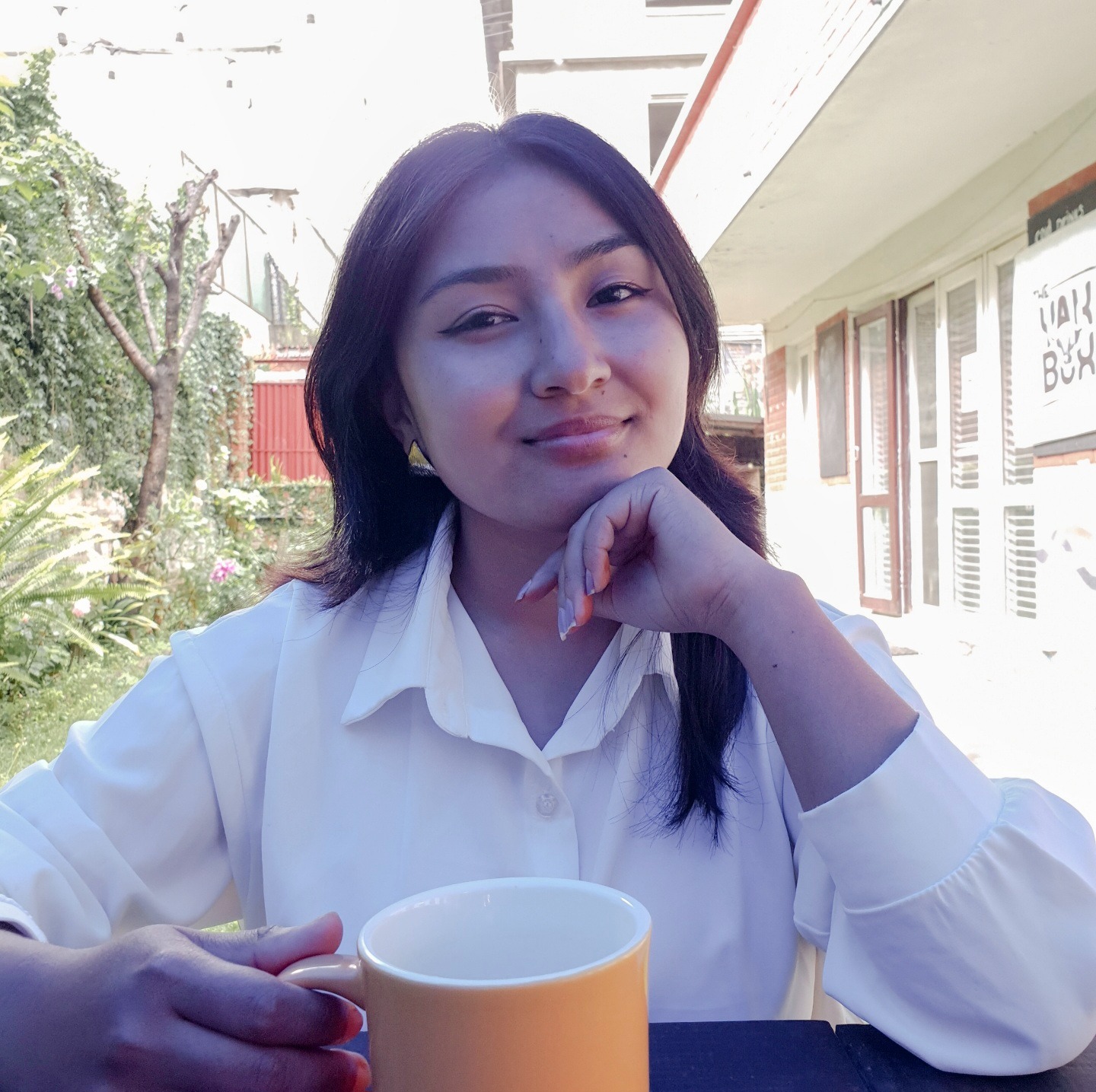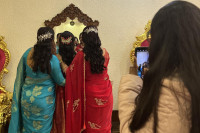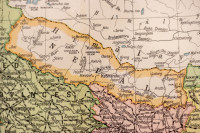Culture & Lifestyle
Jazzing up Newa roots
Hari Maharjan, guitarist and composer, fuses Newa music with gypsy jazz to create innovative instrumental albums.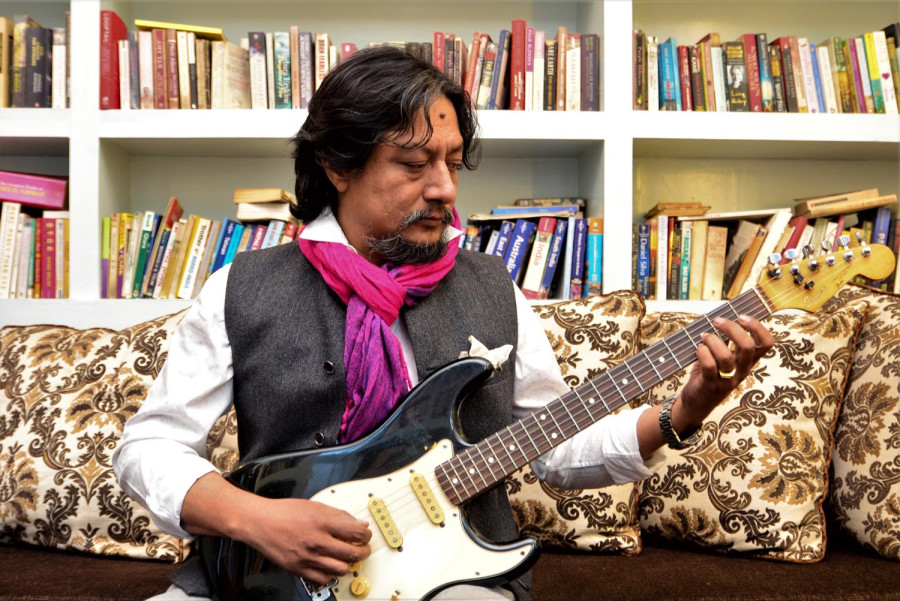
Timila Maharjan
Hari Maharjan is a guitarist, music composer and arranger known for his unique fusion of styles. He has performed on local and international stages and collaborated with many global artists. Maharjan has also served as a Music Theory Professor at Kathmandu University and led the Gypsy Jazz Department at the Nepal Music Centre.
The musician was born in the hustle and bustle of Kathmandu, where one can hear different traditional musical instruments. He grew up listening to different melodies and started learning dhimey (a traditional Newa instrument) for three years.
Later, he started learning the guitar. “I don’t know what pulled me towards the instrument. Maybe it was the sound or wanting to look cool while holding it. As time went by, it gave me joy. Even though I was an amateur.”
Coming from a Newa background, he is deeply connected to its music. He tries to blend the traditional tunes and melodies of Newa music into gypsy jazz. He says, “I’ve always believed that music is universal and thrives on collaboration and innovation. That’s why I wanted to do something bold: take the essence of Newa music—it's unique rhythms and traditional instruments like the dhimey and flute—and blend it with gypsy jazz, which is itself a genre born out of improvisation and fusion. It’s my way of making Newa music relevant for today’s world while respecting its roots.”
With the experience of travelling to different countries and working with different international artists, he often finds Western music similar to traditional Newa Music. He says. “Especially when I listen to gypsy jazz, I find traits of traditional music of Kathmandu Valley in it.”
Maharjan, who has released three instrumental albums: ‘Kalakarmi’ (2008), ‘Sudina’ (2012) and ‘Going into Three’ (2019), is now working on his fourth instrumental album called ‘Swa Niga’ (Sound of Valley). In this album, he is composing new tunes by using sections of Newa rhythm, fusing it with gypsy jazz by adding harmony.
He says, “This album is the mixture of all the experiences I had with different artists, my journey from dhimey to gypsy jazz and redecoration of melodies with the sound of Kathmandu.”
Maharjan is a self-taught guitarist. He says, “I often listened to music from cassettes. After I kept on listening to music through cassettes, I learned to identify guitar chords and play them by just listening.” Back then, when the guitar was not taught theoretically, he collected available guitar resources to read them. Once he started performing, he got guitar books from many artists.
Later, when he travelled abroad, he became acquainted with many musicians, which became a source of learning. He shares, “In my journey of gypsy jazz, all the musicians I met, mainly from France, Netherlands and Switzerland, became my teachers who taught me new things about music. This helped me gain knowledge without a certificate.” He adds, “People I met became my teachers, and the platforms where I performed became my classroom.”
Even though he got many scholarships to study music, he couldn’t commit to it due to family responsibilities. However, he committed to a three months crash course on gypsy jazz at the Alta Music University of Paris. This is the only official education he has in music.
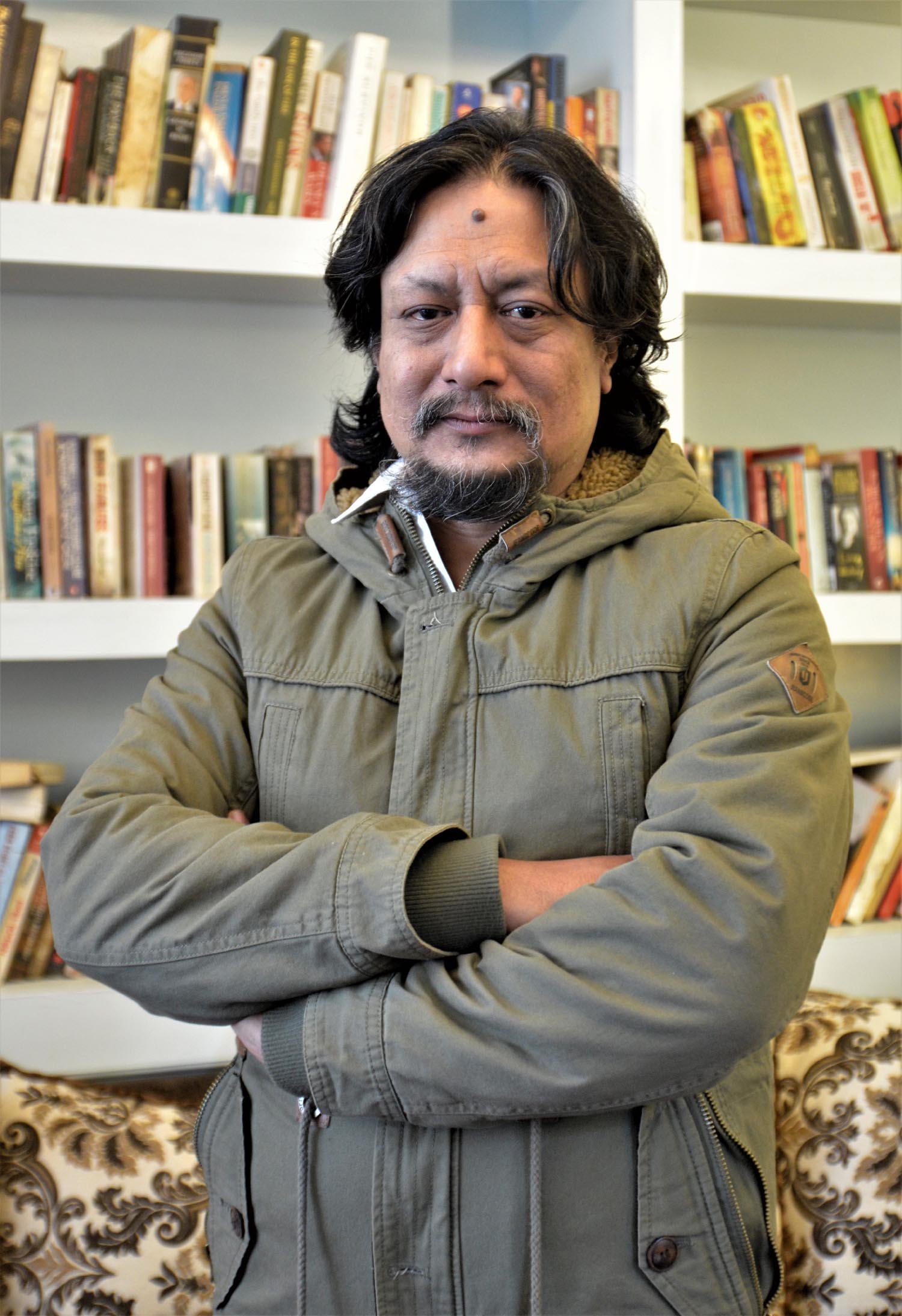
By accumulating all the knowledge and experience, he has also been teaching guitar. He says, “Although the way of teaching guitar and music in Nepal is based on the Western system, I am not detached from my roots and culture.”
Maharjan has also performed and recorded music with different national and international artists and bands like Kutumba, Robin and the New Revolution, Karma Band, Kandhara and more. He was also a part of the Capsule Project (2016), where he collaborated with Swiss artists, bringing together ideas and recording in Kathmandu.
He says, “These opportunities came along the way when I enjoyed playing the guitar. My passion and love for music led to these amazing opportunities.”
Talking of issues, he feels there is a gap in instrumental music in the industry. He says, “Every instrumentalist’s wish is to convey their emotions through the music and instruments, like how singers express them by singing and lyricist by writing the lyrics. Instrumentalists use their instruments to express without words and voices. Thus, I have been making different instrumental albums to provide pleasure to the ear and express my emotions through music.”
After releasing his first album, ‘Kalakarmi’, he received a good response, which helped him connect and collaborate with many national and international artists. The second album was produced by one of the music companies in the Netherlands. The music was recorded in Nepal, but mixing and mastering was done in the European country. After the release of the second album, the third album was recorded and produced by the same company in collaboration with the musicians of the same country. I also got to work with Swiss artists on Swiss songs and recently composed music for a Swiss Documentary called ‘La Montagne Des Geants’ about Lukla.
As a teacher, Maharjan feels that the traditional system of teaching music in Newa communities through Dafa Khala (Newa community musical groups) and traditional groups should also be incorporated into formal institutions. He says, “We should develop a new teaching system by combining advanced technology with traditional skills, knowledge and practices based on Nepali society.”
Moreover, he formed the Hari Maharjan Project (HMP) in 2008 to channel creativity and explore the possibilities of music. The HMP initiative attempts to capture connections that music can build across cultures. It tries to provide a contemporary perspective on traditional Nepali music in the language of Western instruments and styles. All three instrumental albums have been released under HMP.
He is working on releasing his fourth instrumental album under HMP on January 17 at Lord of the Drinks (LOD), Thamel, where three Australian artists will be performing alongside his group. He is also working to organise a concert in Lukla with his friends and locals from Lukla to send a message about Nepali culture and music.
For aspiring musicians, he says, “They just have to listen to themselves and their passion. Consistency is the key. The more you practice consistently, the better you will be.”




 13.12°C Kathmandu
13.12°C Kathmandu